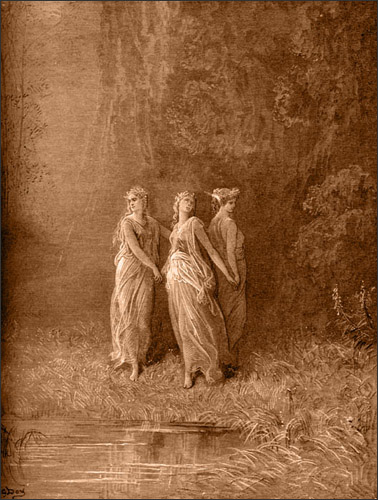Wednesday, 21 August 2013
Consumerism, Materialism, Pride and the Theological Virtues-The Dark Night of the Soul, Part 39
Posted by
Supertradmum
Catholics receive the theological virtues directly from God. We all have human virtues, but the theological virtues pave the way to heaven, allowing one to live in and with the Holy Trinity. The theological virtues, as most know, are faith, hope and charity.
Now, one wonders why these virtues do not flourish in the Church, through the lives of the members of the Church. What happens to stop the growth of faith, hope and love? As these are infused virtues, one would expect all Catholics to exhibit faith, hope and love.
Faith, as defined in the CCC, is the theological virtue by which we believe in God and believe all that he has said and revealed to us, and that Holy Church proposes for our belief, because he is truth itself. By faith "man freely commits his entire self to God."78 For this reason the believer seeks to know and do God's will. "The righteous shall live by faith." Living faith "work[s] through charity."79
To believe in God daily and to believe in Revelation and Tradition are no small feats. A Catholic who is orthodox, that is, obedient to all the Church teaches, and, in addition, gives his life to God totally, is living in and by faith.
One who lives in faith constantly prays and desires to know God, love God and do His Will.
This first theological virtue may be "sinned against", that is, one may turn against this gift and choose not to believe. For some, this is apostasy, the complete denial of faith. For others, the cause could be sloth, not cultivating a prayer life, or not receiving the sacraments frequently.
A habit of sin can destroy faith. One of the greatest enemies of faith is materialism, the belief that the life on earth is the only life, and that there is no eternal, no spiritual life, Materialism denies the soul, and the dignity of the person. This heresy is fast becoming the great heresy of Europe, where many no longer believe in heaven or hell, following the Marxist view of dialectic materialism.
Anarchists are usually materialists, denying a hierarchy of spirituality in the world.
Hope, the second theological virtue, is, according to the CCC, the theological virtue by which we desire the kingdom of heaven and eternal life as our happiness, placing our trust in Christ's promises and relying not on our own strength, but on the help of the grace of the Holy Spirit. "Let us hold fast the confession of our hope without wavering, for he who promised is faithful."84 "The Holy Spirit . . . he poured out upon us richly through Jesus Christ our Savior, so that we might be justified by his grace and become heirs in hope of eternal life."85
This virtue is the most misunderstood of all three. Notice the phrase, "relying not on our own strength, but on the help of the grace of the Holy Spirit". This virtue grows in the Dark Night of the Soul. Father Phelim quotes St. John of the Cross, that, "the more things we possess the less scope and capacity there is for hoping and consequently, the less hope we have." He notes that the less we have in reality and in memory, the more able we are to possess God and hope in His love.
The great enemy of hope is consumerism. Consumerism, which is the greatest sin of the American people, demands that happiness may be bought. People become obsessed with buying more and more and more things, thereby becoming preoccupied with wealth and the consumption of goods obtained by wealth.
One cannot develop the virtue of hope when one is literally consumed with things. Those who possess things do not have room in their hearts, minds, and souls for God. The dispossession of things allows for the freedom to let God into one's being. Hope rests on not having, and if one has one does not perfect hope for the love of God. Consumerism feeds selfishness, which stifles hope.
The third theological virtue is love. The CCC notes that Charity is the theological virtue by which we love God above all things for his own sake, and our neighbor as ourselves for the love of God.
Perhaps, most Catholics understand love, or charity, more that faith or hope. But, love cannot enter the soul, the heart or the mind without first faith and hope. Love is the fulfilment of faith and hope. When one is finally purged of selfishness and greed, of doubt and disobedience, love follows.
The great enemy of love is pride, as pride brainwashes the mind, the heart and the soul into denying the sacrifice of Christ on the Cross, Who loved us, as the CCC reminds us in the section on charity, while we were still enemies. Strong words. Pride denies that we were ever enemies of God, blaming others for our sins, as Eve blamed the serpent, and Adam blamed Eve.
All of these virtues are free gifts from God, but these can lie dormant for years and years unless one allows God to kill materialism, consumerism and pride in us.
That is one of the reasons for the Dark Night of the Soul, the purification of both the senses and the spirit.
To be continued....
